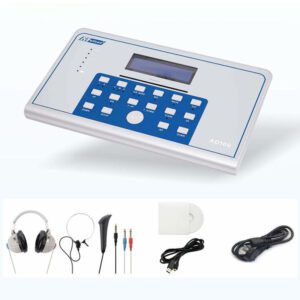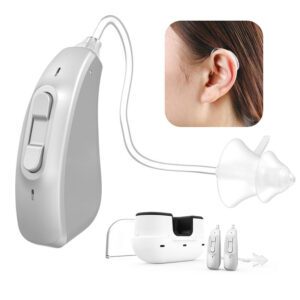hearing Aids can be an effective tool in managing tinnitus (ringing in the ears), particularly when hearing Loss is also present. Here’s a structured overview of how they may help and important considerations:

How hearing Aids May Help with Tinnitus
Amplification of External Sounds
By enhancing ambient noise (e.g., speech, environmental sounds), hearing aids reduce the brain’s focus on internal tinnitus sounds. This is especially beneficial for those with hearing loss, as improved auditory input can alleviate the strain of listening, indirectly lessening tinnitus perception.
Integrated Sound Therapy
Many modern hearing aids include masking features (white noise, nature sounds, or tonal therapies) that distract the brain from tinnitus. These can be customized to match the pitch/volume of the tinnitus for personalized relief.
Reducing Auditory Deprivation
Untreated hearing loss may worsen tinnitus over time. Hearing aids stimulate auditory pathways, potentially preventing this decline and helping the brain reinterpret tinnitus as less intrusive.
Key Considerations
Effectiveness Varies: Success depends on factors like the cause of tinnitus, severity of hearing loss, and individual response. They are not a cure but a management tool.
Best for Comorbid Hearing Loss: Those with both tinnitus and hearing loss typically benefit most. For tinnitus without hearing loss, standalone sound generators or other therapies may be more appropriate.
Professional Guidance Required: An audiologist or ENT specialist should assess hearing, identify underlying conditions, and tailor solutions (e.g., adjusting hearing aid settings or combining with other therapies like CBT or TRT).
Complementary Approaches
Sound Therapy: Apps or devices providing background noise.
Behavioral Therapies: CBT to reduce emotional distress from tinnitus.
Lifestyle Adjustments: Stress management, avoiding loud noises.
Conclusion
Hearing aids are a valuable option for tinnitus management, particularly with hearing loss. While results vary, they can significantly improve quality of life when part of a holistic plan. Always consult a specialist to explore individualized strategies.


